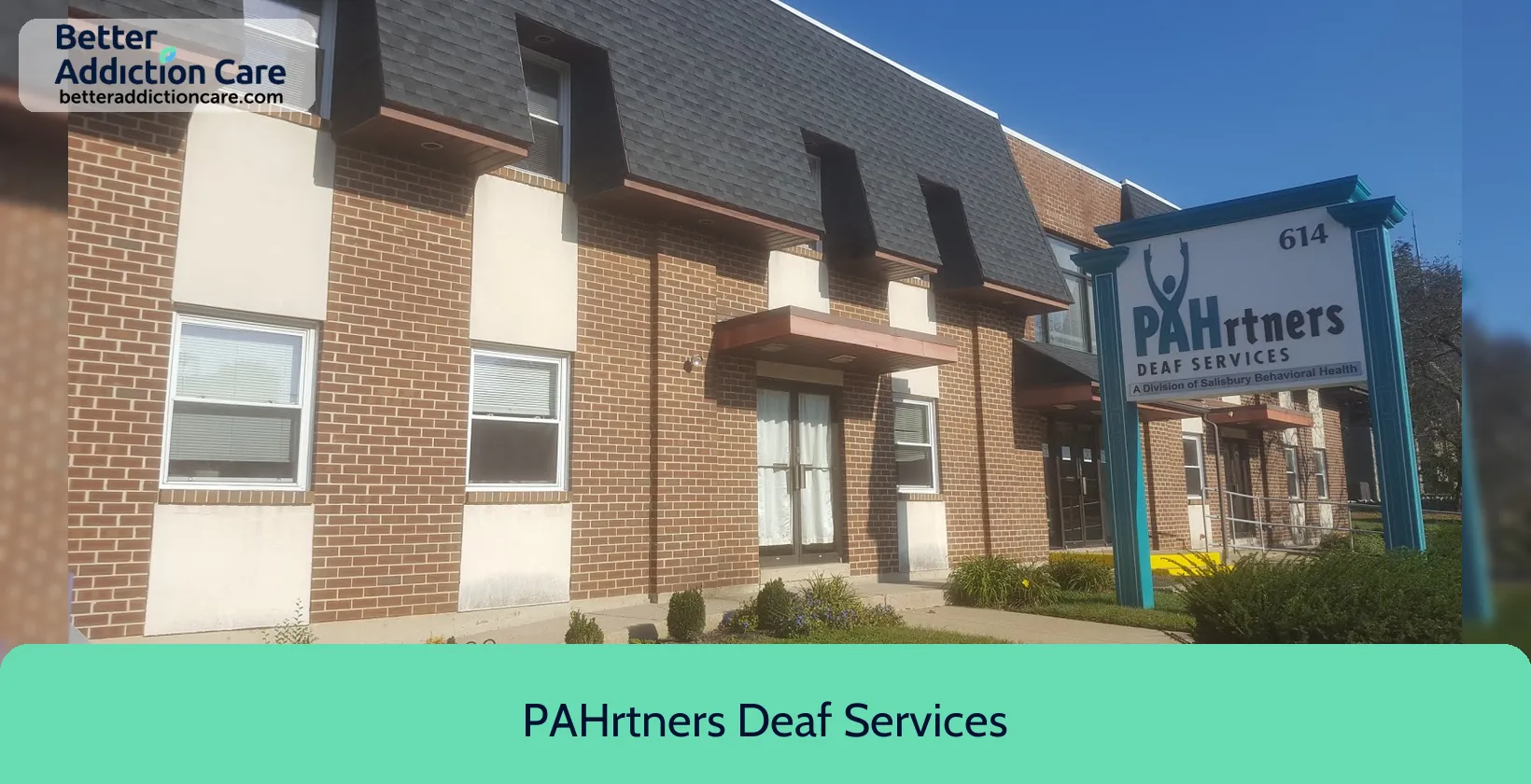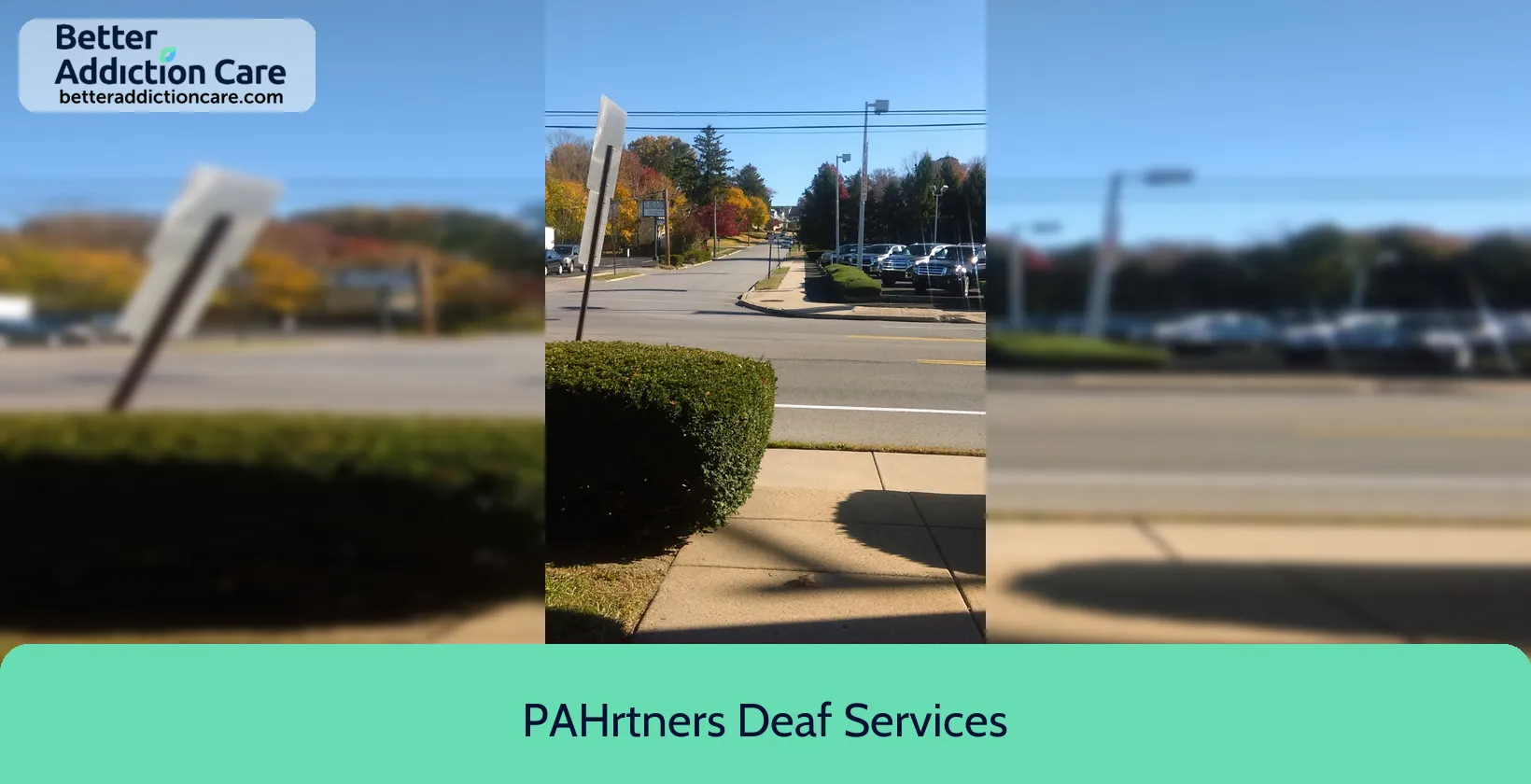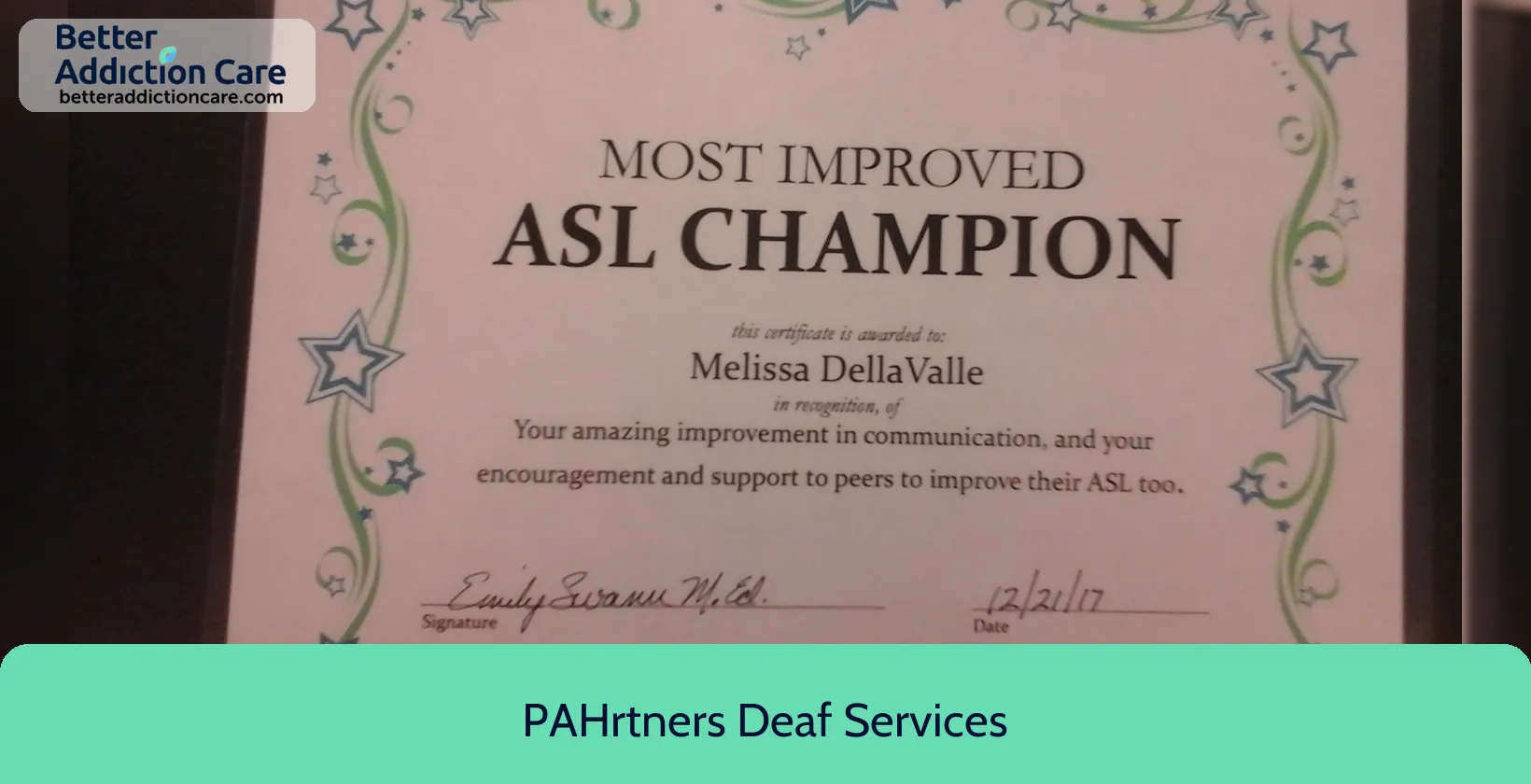PAHrtners Deaf Services
Overview
PAHrtners Deaf Services is a mental health treatment center for people seeking treatment near Montgomery County. As part of their treatment modalities for recovery, PAHrtners Deaf Services provides couples/family therapy, group counseling, and cognitive behavioral therapy during treatment. PAHrtners Deaf Services is located in Glenside, Pennsylvania, accepting cash or self-payment for treatment.
PAHrtners Deaf Services at a Glance
Payment Options
- Cash or self-payment
- Medicaid
- Private health insurance
- County or local government funds
Assessments
- Comprehensive mental health assessment
Age Groups
- Seniors or older adults
- Young adults
- Children/adolescents
- Adults
- Seniors
Ancillary Services
- Intensive case management
- Case management service
- Family psychoeducation
- Psychosocial rehabilitation services
Highlights About PAHrtners Deaf Services
6.65/10
With an overall rating of 6.65/10, this facility has following balanced range of services. Alcohol Rehabilitation: 8.00/10, Drug Rehab and Detox: 6.00/10, Insurance and Payments: 6.00/10, Treatment Options: 6.61/10.-
Alcohol Rehabilitation 8.00
-
Treatment Options 6.61
-
Drug Rehab and Detox 6.00
-
Insurance and Payments 6.00
Treatment At PAHrtners Deaf Services
Treatment Conditions
- Mental health treatment
Care Levels
- Hospital inpatient treatment
- Outpatient
Treatment Modalities
- Couples/family therapy
- Group counseling
- Cognitive behavioral therapy
- Telemedicine/telehealth therapy
- Smoking/vaping/tobacco cessation counseling
Ancillary Services
Languages
- Sign language services for the deaf and hard of hearing
Special Programs
- Clients with co-occurring mental and substance use disorders
- Clients who have experienced trauma
- Persons 18 and older with serious mental illness (SMI)
- Persons with post-traumatic stress disorder (PTSD)
Contact Information
Read our Most Recent Article About Drug Addiction
DISCLAIMER: The facility name, logo and brand are the property and registered trademarks of PAHrtners Deaf Services, and are being used for identification and informational purposes only. Use of these names, logos and brands shall not imply endorsement. BetterAddictionCare.com is not affiliated with or sponsored by PAHrtners Deaf Services.












